‘We all went crazy for her’: ‘One Deadly Summer,’ the tragic movie that made Isabelle Adjani a legend
It’s been 40 years since the now-classic sultry French film noir premiered and made its leading actress a sex symbol
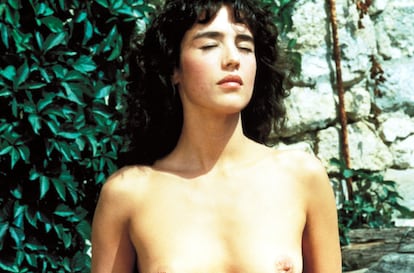
The summer afternoon is already sweltering, but she sends the temperatures soaring as she arrives at the village dance. She wears a skimpy pink dress that clings to her body and blends in with her skin, so it looks like she is wearing only her own very dense sweat, giving her a slippery, baby-like or amphibious appearance. She is a very beautiful creature who radiates insolent sexuality. At first, he just looks at her like a deer in the headlights. But when she approaches him, he asks her to dance. She retorts: “What did you want us to do, climb a tree?” She wipes her hands on her pink dress, and they slow dance to the music. He can’t believe his luck; he also doesn’t know that she has begun her revenge that way.
Later, there will be murders, secrets, lies and a descent into madness. This all happens in Jean Becker’s One Deadly Summer, a French film noir that premiered 40 years ago and became a classic. Its sexy, sultry and tragic atmosphere, coupled with the performance of Isabelle Adjani — who was determined not to be pigeonholed in romantic heroine roles — have made it a cult favorite.
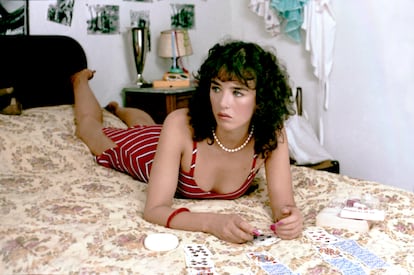
It all started in the late 1970s as a game between good friends. Director Jean Becker and crime writer Sébastien Japrisot decided to work together on a screenplay based on the true story of crimes committed in northern France, but the project did not progress. The author took up the story and turned it into a novel entitled One Deadly Summer, which was published to great acclaim in France in 1977. Japrisot sent a copy to Becker with the note: “I’ve done my job, now it’s your turn.” Although Becker worked on it almost immediately, it took six years for the film adaptation to see the light of day.
Gérard Depardieu and Patrick Dewaere were considered for the male lead — naïve mechanic and fireman Florimond “Pin Pon” Montecciari — before the director’s wife suggested Alain Souchon, a successful singer-songwriter who was just starting his film career. It took longer to cast the leading female role, a sultry and seductive young woman who arrives in a village in the French Midi to settle an old score. The part was immediately offered to Isabelle Adjani, who was riding a wave of success at the time: she had just starred in Andrzej Zulawski’s terrifying masterpiece Possession (1981) and impressed critics around the world with her volcanic performance. At first, the actress dragged her feet and then she refused the role; she was hesitant about the script’s many sexual and nude scenes (she had previously rejected Luis Buñuel’s That Obscure Object of Desire for similar reasons).
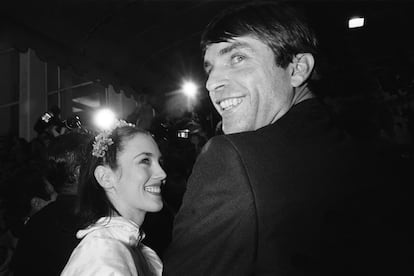
Pop singer Lio also passed on the opportunity, and then Valérie Kaprisky, a twenty-something actress preceded by rumors that she was French cinema’s next big star, jumped on board. Upon hearing the news, Adjani changed her mind and accepted the role, even though she was shooting Carlos Saura’s film Antonieta in Mexico at the time and had already committed to Claude Miller’s film Deadly Circuit, the dates of which then had to be postponed. In between the two films, in the summer of 1982, One Deadly Summer was being shot in several villages in Provence, a region that was experiencing an extreme heatwave at the time.
“It was [like] an oven there,” Michel Galabru, another actor in the film, recalled in an interview for Le Nouvel Observateur magazine. On location, the sun was beating down, threatening to make everyone pass out. It was even worse shooting the indoor scenes, where the spotlights pushed the thermometers up to 122º F. The makeup team struggled to wipe the sweat from the actors’ faces. Adjani was the only one who didn’t break a sweat; they later discovered that she kept her skin dry by taking salt pills and not drinking water. According to Galabru, Adjani remained isolated from the rest of the crew and did not even respond when someone said good morning to her, which did not make for a cordial atmosphere. “That concentration was oppressive,” Galabru said. “But when the clapperboard sounded, it was formidable. If she had to cry, they’d say ‘rolling’ and she’d burst into tears. That girl was a genius. We all went crazy for her.”
Indeed, Adjani and the heatwave were the film’s main assets. The actress won her second César Best Actress Award and enjoyed her biggest box-office success in France for playing Éliane, nicknamed Elle (“she”), a young woman with an explosive physique that concealed a terrible family secret, a calculating mind and brittle mental health. To turn Adjani — who had specialized in pale, tragic heroine roles — into a woman who plays the part of a sex bomb to carry out her plans, they not only gave her an iconic wardrobe of skimpy strapless dresses, tight T-shirts, high heels and mini shorts, but they also made up her entire body so that it appeared tanned when it was generously exposed to the camera.
In a way, the role was a compilation of patriarchal clichés about women: the Marilyn Monroe-like sex bomb, the Lolita, the femme fatale, the troublemaker, the unhinged one. She was the centerpiece of a convoluted script with implausibilities that anticipated Park Chan-wook’s films. But it was thanks to the performance of Adjani, working against type, that the character rose above herself to become something much more complex and appealing. In one of the film’s climactic scenes, when Elle bursts into the Montecciari family’s breakfast after having slept with Pin Pon and his mother asked her to show something white that was sticking out of her hand, lest it be a piece of the family trousseau that she intended to steal from them, she defiantly replied: “They’re my panties! I don’t like to wear the same clothes I wore the day before.”
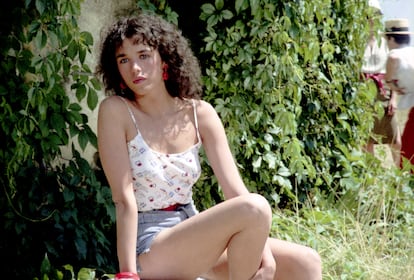
On the other hand, cinema has rarely succeeded in conveying a feeling of embarrassment so faithfully. The characters’ (mostly real) sweat, the song of the cicadas grafted onto the soundtrack, the saturated colors, the overexposure and an image that seems slightly fogged by the steam exuded by the bodies on screen all contributed to creating the torrid atmosphere. One Deadly Summer followed in the footsteps of Lawrence Kasdan’s Body Heat — another erotic-criminal intrigue from a couple of years before that was also well lubricated with perspiration — and expanded on it.
When the film premiered at the Cannes Film Festival, Adjani caused a certain scandal because she was unhappy with how the paparazzi had been hounding her; she refused to do a general shoot and instead granted an exclusive to the few reporters she trusted. In protest, when it came time for the montée des marches — the climb up the steps of the festival palace for the screening — the professionals refused to take pictures and put their cameras on the ground as the diva walked by.
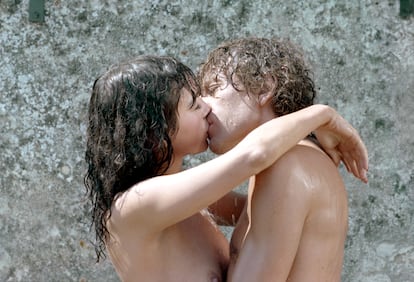
Adjani, the favorite to win the Best Actress Award, left Cannes empty-handed. The award went to Germany’s Hanna Schygulla — her co-star in Antonieta — for a relatively minor role in Marco Ferreri’s The Story of Piera. Months later, Adjani would win a César award, one of the four that One Deadly Summer won. She then went on one of her habitual professional hiatuses and stayed away from the camera for two years before returning in style with Luc Besson’s Subway, another of her hits. But she was not as magnetic in that movie or ever again. One Deadly Summer was the best summer of her life.
Sign up for our weekly newsletter to get more English-language news coverage from EL PAÍS USA Edition
Tu suscripción se está usando en otro dispositivo
¿Quieres añadir otro usuario a tu suscripción?
Si continúas leyendo en este dispositivo, no se podrá leer en el otro.
FlechaTu suscripción se está usando en otro dispositivo y solo puedes acceder a EL PAÍS desde un dispositivo a la vez.
Si quieres compartir tu cuenta, cambia tu suscripción a la modalidad Premium, así podrás añadir otro usuario. Cada uno accederá con su propia cuenta de email, lo que os permitirá personalizar vuestra experiencia en EL PAÍS.
¿Tienes una suscripción de empresa? Accede aquí para contratar más cuentas.
En el caso de no saber quién está usando tu cuenta, te recomendamos cambiar tu contraseña aquí.
Si decides continuar compartiendo tu cuenta, este mensaje se mostrará en tu dispositivo y en el de la otra persona que está usando tu cuenta de forma indefinida, afectando a tu experiencia de lectura. Puedes consultar aquí los términos y condiciones de la suscripción digital.









































